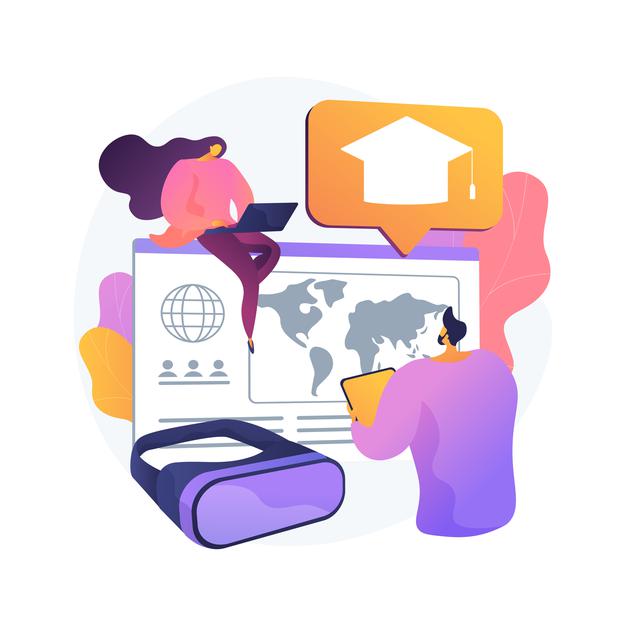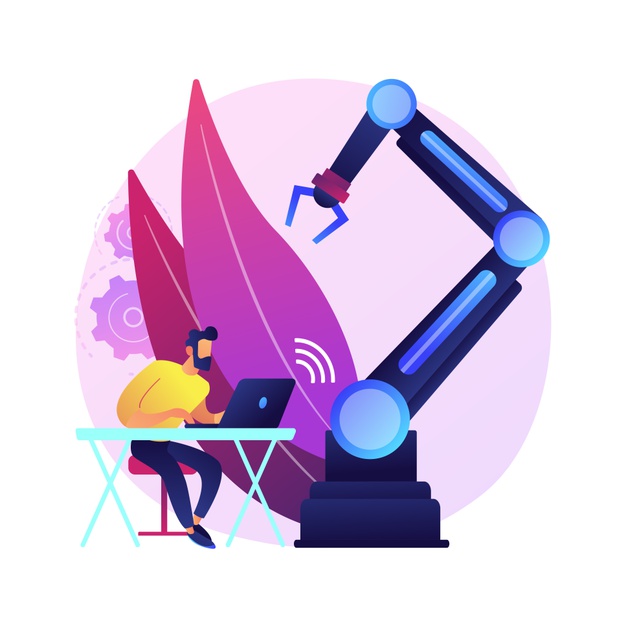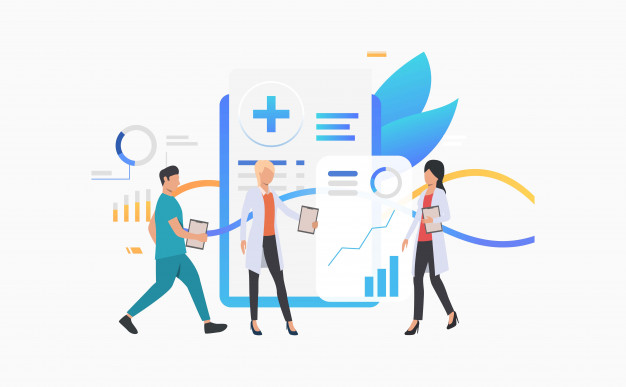Artificial intelligence strategy
AI has emerged as a revolutionary entity driving business strategies with its next-gen business models. Leveraging its potential has led to a transformational shift in the business arena, and Appok is well-versed with evolving AI models and its transformational journey.
Robotic Automations
Artificial intelligence is poised to change the future as it takes the human-centric roles with an emphasis on robotics process automation. Utilize the power of this humongous data and corresponding context intelligence to upgrade your business processes.
Data Insights
Drive your business to greater heights with AI. At Appok we enable enterprises to leverage data science to provide solutions to critical business problems. With expertise in developing data models, data classification techniques and machine learning algorithms, we enable enterprises to manage their data.

Artificial Intelligence Need in business
Artificial intelligence is affecting the world’s economy and society. complex as monitoring a wind turbine to predict when it will need repairs. It is useful for companies to look at AI through the lens of business capabilities rather than technologies. Broadly speaking, AI can support three important business needs: automating business processes,
Manufacturing Industry
AI algorithms can also be used to optimize manufacturing supply chains, helping companies anticipate market changes. In manufacturing, ongoing maintenance of production line machinery and equipment represents a major expense, having a crucial impact on the bottom line of any asset-reliant production operation. Recent researches show that unplanned downtime costs manufacturers an estimated $50 billion annually, and that asset failure is the cause of 42 percent of this unplanned downtime. For this reason, predictive maintenance has become a must-have solution for manufacturers who have much to gain from being able to predict the next failure of a part, machine or system.


Innovation in health sector
It puts consumers in control of health and well-being. Additionally, AI increases the ability for healthcare professionals to better understand the day-to-day patterns and needs of the people they care for, and with that understanding they are able to provide better feedback, guidance and support for staying healthy.
Artificial intelligence in healthcare is an overarching term used to describe the utilization of machine-learning algorithms and software, or artificial intelligence (AI), to emulate human cognition in the analysis, interpretation, and comprehension of complicated medical and healthcare data.
Garbage Management
Diversion of plastics from landfill to recycling can potentially save the energy equivalent of 60 million barrels of oil annually and reduce landfill volume requirements by up to 20%. The U.S. Environmental Protection Agency has recommended that source reduction, recycling, volume reduction, and landfilling be applied, in that order, in the treatment of municipal solid waste (MSW). Recycling has recently become a major component of municipal waste management programs. High costs of labor intensive curbside recycling programs have brought about a second generation technology, mixed waste processing, for accomplishing higher levels of recycling at reduced costs. The economics of mixed waste processing depends upon efficient automated processes for recovering recyclables from MSW. Efficient automated technology exists for recovery of steel, aluminum, compostable food waste and paper products from MSW.
These items make up the bulk of MSW. However, the only existing method to recover glass and plastic containers from MSW is to manually handpick them from the waste. The objective of the Phase I research program is to determine feasibility for development of an efficient automated process for recovering post-consumer plastic and glass containers from MSW using recognition algorithms incorporating artificial intelligence techniques.


Ai helps in Financial sector
AI assistants, such as chatbots, use artificial intelligence to generate personalized financial advice and natural language processing to provide instant, self-help customer service. Here are a few examples of companies using AI to learn from customers and create a better banking experience.
Artificial Intelligence (AI) is a powerful tool that is already widely deployed in financial services. It has great potential for positive impact if companies deploy it with sufficient diligence, prudence, and care. There are many benefits of using AI in financial services.
What is the role of the financial sector?
Artificial intelligence is already widely used in business applications, including automation, data analytics, and natural language processing. Across industries, these three fields of AI are streamlining operations and improving efficiencies. Automation alleviates repetitive or even dangerous tasks
Prediction of future outcomes and trends: With its power to predict future scenarios by analyzing past behaviors,
How is AI used in businesses?
AI helps banks predict future outcomes and trends. This helps banks to identify fraud, detect anti-money laundering pattern and make customer recommendations.
AI Stock Trading?
AI is shaping the future of stock trading. Using AI, robo-advisers analyze millions of data points and execute trades at the optimal price, analysts forecast markets with greater accuracy and trading firms efficiently mitigate risk to provide for higher returns.
LOOKING TO START PROJECT WITH US
Don’t worry, our extensive range of services have you covered.
Share your custom requirements with us to get your project started.


















